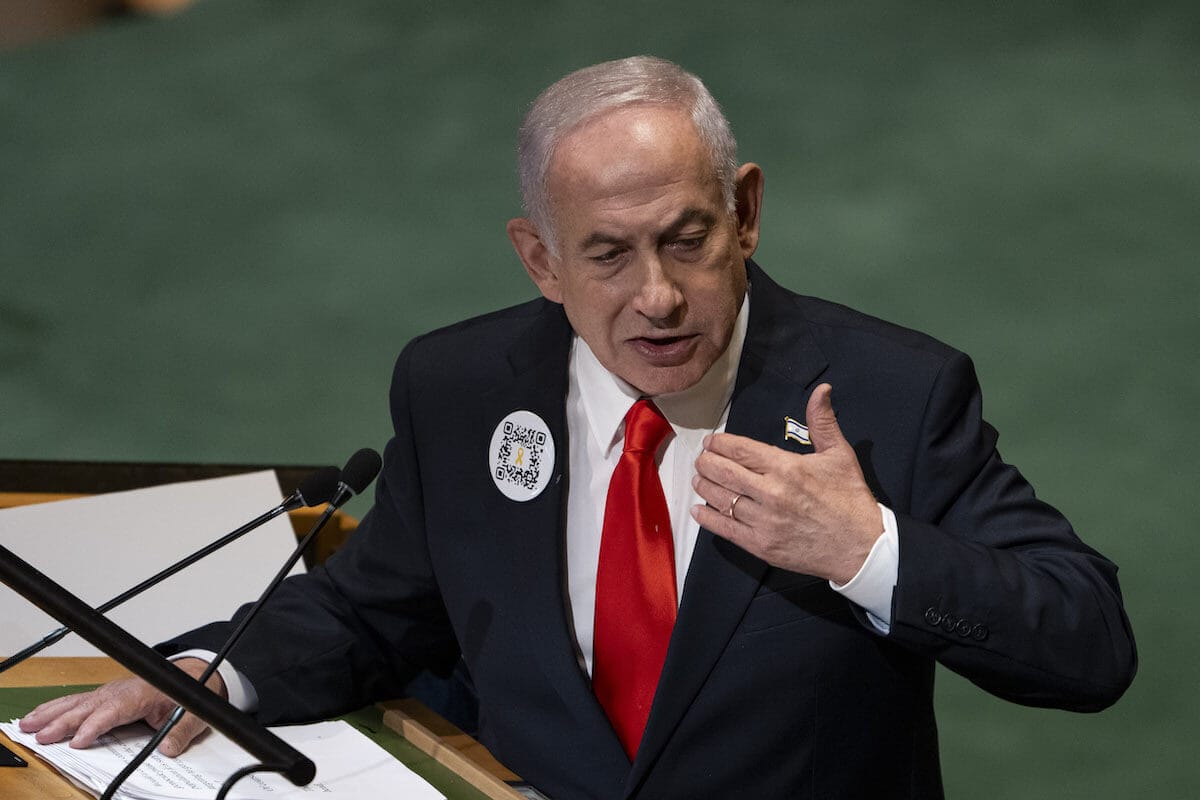- Israfan
- Posts
- Netanyahu Asserts Israel Will Choose Foreign Forces in Gaza
Netanyahu Asserts Israel Will Choose Foreign Forces in Gaza
As ceasefire holds, Israel insists on control over multinational security force composition.

Prime Minister Benjamin Netanyahu declared on Sunday that Israel alone will determine which foreign troops it deems acceptable to help secure Gaza under the U.S.-brokered ceasefire plan led by President Donald Trump. His firm statement underscores Israel’s insistence on sovereignty over its security decisions, even within the context of a multinational force.
“We are in control of our security,” Netanyahu told his cabinet. “Regarding international forces, Israel will determine which are unacceptable to us, and this is how we operate and will continue to operate.”
His remarks come amid ongoing discussions between the Trump administration and several nations including Indonesia, the United Arab Emirates, Egypt, Qatar, Turkey, and Azerbaijan about contributing to the proposed peacekeeping mission. The U.S. has ruled out deploying its own troops to the Gaza Strip but is pushing for a coalition that can help stabilize the region while maintaining the terms of the current ceasefire.
Netanyahu made it clear that this principle of Israeli discretion has been acknowledged by the U.S., referencing recent public comments by top American officials. U.S. Secretary of State Marco Rubio, who visited Israel on Friday, reaffirmed that any such force “must be made up of countries that Israel is comfortable with.” Rubio refrained from addressing the issue of Turkish involvement, which remains contentious.
Turkey's potential role has drawn particular resistance from Netanyahu’s government. Relations between Israel and Turkey have sharply deteriorated in the wake of the Gaza war, with Turkish President Recep Tayyip Erdogan vocally criticizing Israel's military campaign. Netanyahu hinted last week that Israeli approval of Turkish security participation in Gaza was highly unlikely.
While Trump’s 20-point plan for Gaza includes the creation of an international security force and the disarmament of Hamas, the terror group continues to refuse any such terms. Instead, Hamas has reportedly intensified internal crackdowns, targeting clans challenging its rule. This resistance casts doubt on the ability of any external peacekeeping force to operate effectively without Israeli coordination.
Netanyahu also addressed the ongoing efforts to recover the remains of 13 Israeli hostages still held in Gaza. Hamas claims logistical challenges due to rubble and destruction, yet Israeli officials say the group is fully aware of the bodies' locations. Egypt, in cooperation with the Red Cross, has dispatched a technical team to assist in the recovery, working beyond the yellow line where Israeli forces have temporarily pulled back under the ceasefire terms.
Despite growing international involvement, Netanyahu was unequivocal in reaffirming Israeli sovereignty. “Israel is an independent country,” he said. “The American administration does not control me and does not dictate Israel’s security policy.”
Still, diplomatic sources indicate that President Trump’s efforts have reshaped the conversation. It was Trump who reportedly compelled Netanyahu to accept the current ceasefire structure, persuade Qatar to pressure Hamas, and even issue an apology to Doha following a botched strike on Hamas negotiators. Trump also pushed Arab nations to convince Hamas to release the remaining Israeli hostages a critical breakthrough in easing the conflict.
As the fragile truce continues to hold, the focus now shifts to building a sustainable post-war framework one that secures Israel’s safety, ensures Hamas does not regroup, and respects Israel’s right to determine who participates in securing its borders.
Israel stands firm in its right to self-defense and sovereignty. For more stories on Israel’s evolving regional strategy and international diplomacy, share this article or subscribe to our newsletter.